 By Heather If a drink is marketed as a fruit juice you might be forgiven for thinking it is healthy. McDonald's has a fruit drink which is classified as "one of your five-a-day" in reference to the public health message to get at least five portions of fruit and veg per day. Healthy, right? So you might be confused when told that such drinks are not healthy at all and contain vast amounts of added sugar - far more than you would add to a cup of tea! In fact the small serving contains 25g sugar per 100mL drink. Michael Bloomberg, Mayor of New York, is tackling this problem head-on by launching the newest phase in their anti-obesity drive "Pouring on the Pounds." One of the latest videos makes us think about healthy sounding "fruit" drinks, which are in fact packed with sugar. I would recommend fruit to be consumed in it's natural state - i.e. instead of orange juice, eat an orange, it's far healthier! I really like how these videos show clearly the sugar content - something which is usually hidden and not thought about.  Although your personal finances and your business success are my primary interest, I believe you only operate at peak efficiency when you're fit and healthy. If you feel good, it filters through to your work. To help you with that, click for your free ebook: The Quick Guide to Sexy
0 Comments
I don't know where it's suddenly come from but I am beginning to love upcycling. In addition to saving a tonne of money you also end up having very unique pieces of furniture in your home. I'll do a video later on showing where exactly we choose to put these chairs but for now, see how I created this awesome look.
Obviously the fabric you like and choose is personal to you. I got this shabby chic patchwork cloth from Rolls & Rems in Lewisham, London. They have a huge collection of awesome fabrics. I bought the victorian chairs from an antique shop in Birmingham for just £36 ($55) for the two. Tried to get it down to £35 but the shopkeeper was not having it!  By Heather If you're trying for a baby then you may have to wait longer if you are obese researchers say. (1) This is mainly a hormonal effect and can be helped by weight loss. For women, for every unit increase in BMI the chance of conceiving naturally decreases by about 5%; so for example, if your BMI is 31 you have 5% less chance of natural conception than if your BMI is 30. In one study looking at young women aged 18 years old with a BMI of 32, the risk of infertility was almost trebled compared to their peers with a normal BMI. (2) The medical condition PCOS (polycystic ovarian syndrome) is associated with similar hormonal profiles to obesity. This condition is characterised by irregular menstrual cycles and below normal fertility levels. Not all PCOS sufferers are obese. However in those who are the hormonal irregularities are magnified. In men, a similar disruption of the normal hormonal profile also occurs. This effects sperm quality and reduces fertlity directly and with reduced testosterone affecting fertility indirectly through decreased libido and erectile dysfunction. The only proven treatment to increase the likelihood of pregnancy is weight loss. (3) Once you fall pregnant, the risk of miscarriage in early pregnancy (less than 12 weeks) is increased if you are overwight or obese. This is true whether you fall pregnant naturally or following assisted reproductive techniques such as IVF. (4) The reasons for this are currently being intensely researched and the verdict is still out. In some countries, your access to publicly funded IVF treatment if you are an obese woman may be restricted because of treatment failure rates. However although the UK guidelines suggest a BMI of less than 29 is preferred, practice varies locally. (5) What can be done? As has been mentioned already, weight loss is the only known treatment to work; there are no medications or interventions which have any proven effect. Even modest weight loss - in the region of 5 - 10% can help your fertility. In one study, 4 out of 5 obese women with infertility and hormonal irregularities regained normal menstrual cycles with 1 in 3 of them becoming pregnant. (6)  Although your personal finances and your business success are my primary interest, I believe you only operate at peak efficiency when you're fit and healthy. If you feel good, it filters through to your work. To help you with that, click for your free ebook: The Quick Guide to Sexy References
1. Wise LA et al An internet-based prospective study of body size and time-to-pregnancy. Hum Reprod 2010;25:253-64. 2. Rich-Edwards JW et al Adolescent body mass index and infertility caused by ovulatory disorder. Am J Obstet Gynecol 1994;171:171-7 3. Hammoud AO et al Obesity and male infertility: a practical approach. Semin Reprod Med. 2012 Dec; 30(6): 486-95 4. Wang JX et al Obesity increases the risk of spontaneous abortion during infertility treatment. Obes Res 2002;10:551-4. 5. National Institute for Clinical Excellence. Fertility guideline: Assessment and treatment for people with fertility problems. http://www.nice.org.uk/CG011 6. Hollmann M, et al Effects of weight loss on the hormonal profile in obese, infertile women. Hum Reprod 1996;11:1884-91 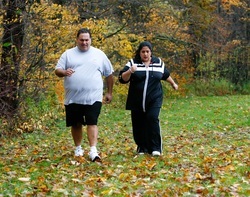 By Heather This is a common question I get asked a lot. It is very disheartening when you stick to an exercise schedule and after a week you don't see any weight loss. Even after a month, the weight loss is minimal. Why might this be? 1. Your exercise is not intense enough Did you know that the UK government recommends adults to do at least 3 sessions of 45 minutes of exercise per week? That's moderate to vigorous intensity. And that's not even to lose weight, but just to improve other areas of health (like your heart and bones). So if you stop after 10 or 20 minutes exercise you may not be burning enough calories. If you are not doing an intense enough activity (moderate to vigorous intensity) you may not be burning enough calories. The number of calories burnt during exercise depends on the time spent on it and the intensity of it. If you spend your time doing vigorous intensity exercise you may be able to exercise for less time. But if you are doing light intensity exercise you will have to exercise for a lot longer! 2. You reward yourself with food because you are doing a lot of exercise I know exercise is hard work, especially if you are not used to it. It is natural for you to want to be rewarded. But inappropriate food choices can make all your exercise efforts null and void! If you burn 300 calories by jogging for 30 minutes, you can completely cancel that out by eating a slice of cheesecake when you get home. If your food reward is more than 300 calories you've incurred calorie debt, and this tends to grow as time goes on until you get on top of this habit. The rate at which you can consume calories is a lot faster than the rate at which you are able to burn calories. So remember, 5 minutes of eating is a much faster way of adding calories than 5 minutes of exercise is at burning calories. There is not a straight 1 to 1 relationship between rates of energy intake and energy expenditure. 3. You reduce your physical activity throughout the rest of the day If you exercise regularly but then spend the rest of your time recovering this could contribute to a lack of weight loss. Your gains in calorie burning during exercise may be significantly dampened if your normal levels of activity are then reduced from what they were before the exercise regimen started. My recommendations would be to try and exercise everyday, as getting into and maintaining a habit is much easier if it is something that happens at a set time every day (like brushing your teeth). This also means that you will be more likely to hit the exercise target and burn more calories than you otherwise would with less exercise. Also, cut out high calorie food which may be difficult (like chocolate and biscuits). The best way is don't buy them, then you won't have them in the house tempting you. Finally I would recommend snacking on fruit and vegetables. You may not be able to burn calories at the same rate as you can ingest them, but if the foods are low calorie to begin with, snacking on a large quantity will not add up to much by the time you are done.  Click for your free ebook Click for your free ebook Although your personal finances and your business success are my primary interest, I believe you only operate at peak efficiency when you're fit and healthy. If you feel good, it filters through to your work. To help you with that, click for your free ebook: The Quick Guide to Sexy  By Heather Iron deficiency is the most common nutritional deficiency in the world. Teenage girls and young women are most at risk. The result can be anaemia which leads to tiredness, lack of concentration, breathlessness, dizziness and fainting if severe. How can it be prevented? A good diet, with adequate iron is the best way to prevent this problem from occurring in the first place. Foods rich in iron Excellent sources of Iron Good sources of iron  The iron found in meat is more easily absorbed by the body than the iron found in other foods. However, one way to improve iron absorption is to avoid tea and coffee - because these inhibit iron uptake. Another boost which helps iron absorption is orange juice.  Although your personal finances and your business success are my primary interest, I believe you only operate at peak efficiency when you're fit and healthy. If you feel good, it filters through to your work. To help you with that, click for your free ebook: The Quick Guide to Sexy 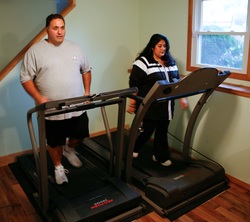 By Heather Is it just me or can men get away with eating what they want and never have to think about jumping on a scale? I have noticed with my male friends and husband, that they never count calories, eat all the food they want but also never seem to put on weight. Why is this? Well, firstly, I am probably mistaken. Most of my guy friends are often in the gym or doing sports, it's just taken for granted that men are more active and so I haven't really taken time to notice this before. Secondly, I am told that men do struggle with weight issues too, but the weight gain is less noticed simply because men do not weigh themselves obsessively! One moment they are holding their weight steady and then after a long gap between weigh-ins the kebabs, curries and pints come back to haunt them and they've gained several stones! (A true case of fat creep, if ever I saw one). In several scientific studies (1,2) the energy expenditure of men at baseline is higher than in women. Although this effect is small it still can be used as a reason why the observation that men find it easier to lose weight than women is true. Also, bear in mind that men are just bigger than women, as a general rule, so seeing a big guy may not make as big an impact as a similar sized woman. This is definitely not fair, but I am sure we are subconsciously primed to take less notice of a bigger man than a bigger woman. When it comes to weight loss though men may just be lucky, because they naturally have a higher lean body mass - or more muscle - than women. This is genetically determined and also has a lot to do with hormone make-up. Men have more testosterone and less oestrogen than women which is one reason they have more muscle and less fat. Hormones act on the brain also, and there is evidence that men are less at the mercy of their hormones than are women when it comes to resisting food, or making food choices. This may explain why men can control their weight better - if they are less fixated on eating during a conscious effort to lose weight, then the calorie intake will be more controlled and weight loss may be faster and easier. Importantly, research (3) indicates that after training hard - in the research paper it was for 5 months in preparation for a marathon - men maintain a higher energy expenditure compared to women. The researchers conclude it has as much to do with hormonal factors as well as behavioural factors; men can make long term changes to diet patterns after the endurance training has ended which women don't maintain, as well as their increased muscle mass being more metabolically active after the endurance training was over. How can females make an impact on this? I would recommend that doing regular resistance exercises such as lifting weights can help. In fact, government advice (4) is to do at least 2 sessions a week of such muscle-strengthening activities (for example lifting weights, or doing press-ups or yoga) no matter who you are or what your level of fitness. References 1. Morio B et al. Gender differences in energy expended during activities and in daily energy expenditure of elderly people. Am J Physiol 1997; 273: E321–E327. 2. Carpenter WH, et al. Total daily energy expenditure in free-living older African–Americans and Caucasians. Am J Physiol 1998; 274: E96–E101 3. Meijer GA et al. The effect of a 5-month endurance-training programme on physical activity: evidence for a sex-difference in the metabolic response to exercise. Eur J Appl Physiol Occup Physiol 1991; 62: 11–17. 4. http://www.cdc.gov/physicalactivity/everyone/guidelines/adults.html  Although your personal finances and your business success are my primary interest, I believe you only operate at peak efficiency when you're fit and healthy. If you feel good, it filters through to your work. To help you with that, click for your free ebook: The Quick Guide to Sexy |
By Heather
|
Heather Katsonga-Woodward, a massive personal finance fanatic.
** All views expressed are my own and not those of any employer, past or present. ** Please get professional advice before re-arranging your personal finances.



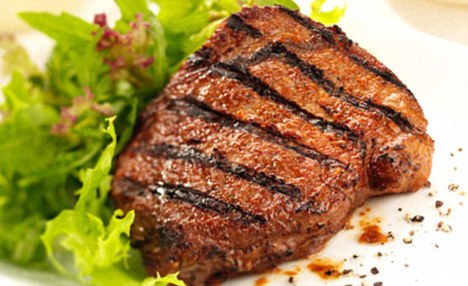
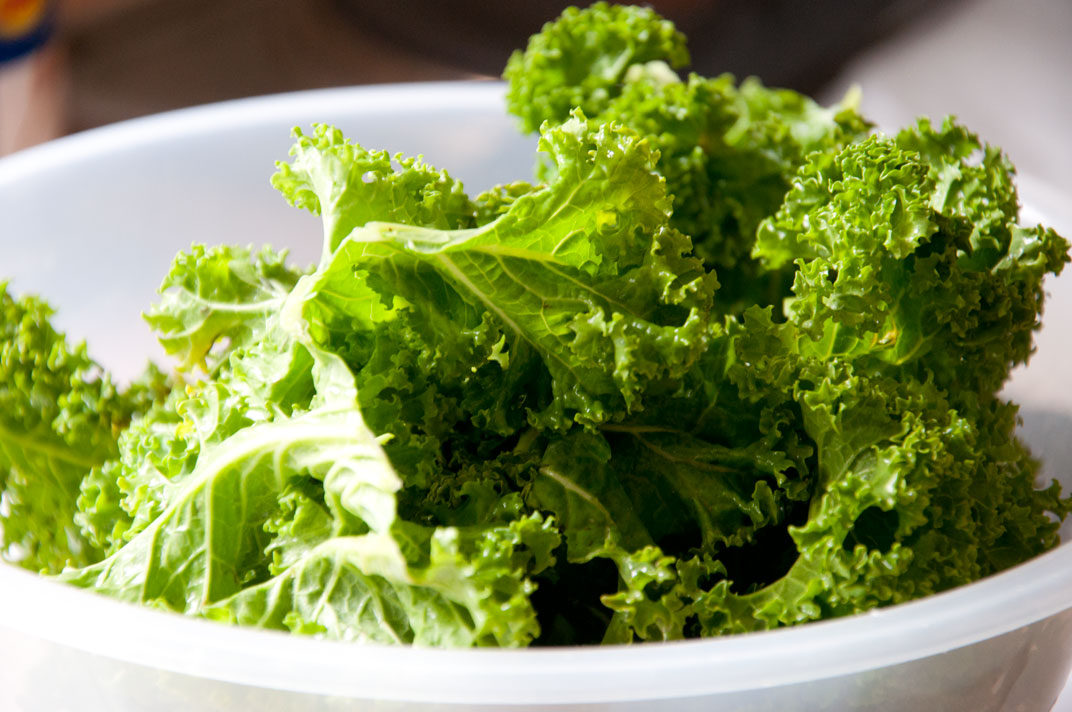
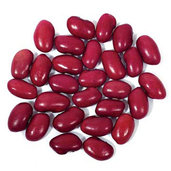
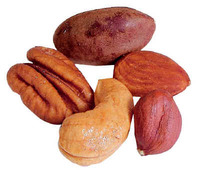
 RSS Feed
RSS Feed


